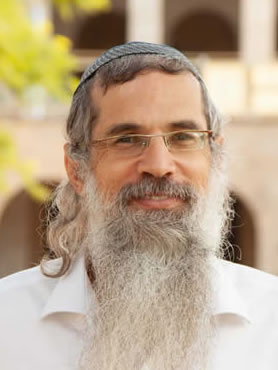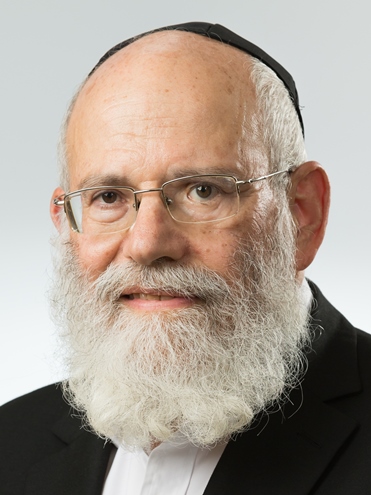The Festival of Shavuot – Atzeret
הרב מרדכי גרינברג
נשיא הישיבה
"These are the appointed festivals of Hashem ... which you shall call in their appropriate time." (Vayikra 23:4) Each festival has a special name that characterizes it and indicates its essence.
"On the fifteenth day of this seventh month is the Festival of Succot, a seven-day period for Hashem ... on the eighth day ... it is an assembly (atzeret)." (23:34-36) Rashi explains: "I have withheld you in assembly with me, like a king who invited his children to a feast for a certain number of days. When time came for them to take leave, he said: My children, please stay with me for one more day." The Sforno writes about the meaning of atzeret: "To stand for some time in the holy places, to serve G-d in those places with Torah or prayer or [sacrificial] service."
Thus, the eighth day of Succot is called atzeret, since it concludes and sums up the previous festival. Based on this, it is very strange that in the Torah it says, "You shall make the Festival of Shavuot" (Shemot 34:22), whereas Chazal call this festival "Atzeret."
In addition, the first question with which we open the Haggadah on the Seder night is: "Why is this night different than all other nights? On all nights we eat chametz and matzah; on this night – only matzah." This requires explanation. On which night do we eat chametz and matzah? If the intention is that sometimes we eat chametz and sometimes matzah, then there is no question why this night we eat matzah!
The korban todah (thanksgiving-offering) is comprised of an animal and forty loaves, ten chametz and thirty matzah. The todah is unique in that the time to eat it is limited to one night, unlike other peace-offerings, whose mitzvah is for two days and one night. The Netziv explains that the purpose of the offering is to relate G-d's kindness, Who saved him from death. Therefore, the Torah added the bread and cut down the eating time, in order that the person will invite many people to the meal, so that there will not be leftover, and he will relate G-d's deed in a large group.
The korban Pesach is a thanksgiving-offering for the Exodus from Egypt, and it is eaten at night, but it has only matzah. This is the meaning of the question: Why is this night different [from other nights of todah]? On all nights we eat loaves of chametz and of matzah, whereas on this night we eat a todah of matzah alone!
The answer is that the thanksgiving is not only for the Exodus from Egypt, but also for the continuation of the redemption, which was at Mt. Sinai: "When you take the people out of Egypt, you will serve G-d on this mountain." (Shemot 3:12) Therefore, the korban todah is divided into two: the matzah part on the Seder night and the chametz part on Shavuot, as it says about the two loaves of Shavuot, "They shall be baked chametz."
The Ramban writes: "On the Festival of Shavuot, which is the day of Matan Torah, the offering is brought as a form of todah." The matzah is passive, it is not allowed to rise and ferment, whereas chametz is self-fulfillment. Pesach represents G-d's initiative, since, "You were naked and bare [of mitzvot]." Bnei Yisrael continued to elevate until Matan Torah – man's initiative – mitzvot and good deeds, and therefore, "They shall be baked chametz."
Pesach and Shavuot are one festival. Just as Succot is seven days and an atzeret on the eighth day, so, too, the week of Pesach is like the first day, and later the day of Matan Torah, with seven weeks in between. As the Ramban writes: "He sanctified the eighth day of the festival, and the days that are counted in between are like chol hamo'ed.
Chazal called the Festival of Shavuot by the name, Atzeret, to teach us that the Festival of Shavuot does not stand by itself, but rather it is connected to Pesach, just like Shemini Atzeret is to Succot, and it is the completion of the Festival of Pesach. Thus, this name, Atzeret, gives meaning to the Festival of Shavuot.
קוד השיעור: 3975
לשליחת שאלה או הארה בנוגע לשיעור:

.jpg)

.jpg)


